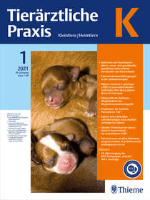
TIERAERZTLICHE PRAXIS AUSGABE KLEINTIERE HEIMTIERE
Scope & Guideline
Nurturing the future of companion animal health.
Introduction
Aims and Scopes
- Clinical Veterinary Medicine:
The journal publishes research that emphasizes clinical practices in small animal medicine, including case studies and evaluations of diagnostic methods and treatment protocols. - Veterinary Pathology and Diagnostics:
There is a strong focus on pathology, with numerous studies dedicated to understanding disease mechanisms, diagnostic criteria, and the development of treatment plans for various conditions affecting small animals. - Pharmacology and Therapeutics:
Research related to pharmacological treatments, including new drug development and efficacy studies, plays a significant role in the journal, reflecting the importance of medication in veterinary practices. - Preventive Medicine and Public Health:
The journal highlights the importance of preventive measures in veterinary care, including vaccination strategies, disease prevention, and the impact of zoonotic diseases. - Veterinary Education and Professional Development:
There is a consistent emphasis on improving veterinary education and practices, as seen through conference abstracts, guidelines, and surveys that address ongoing professional development.
Trending and Emerging
- Advancements in Surgical Techniques:
There is a noticeable increase in publications focusing on innovative surgical procedures and techniques, indicating a trend towards improving surgical outcomes and enhancing veterinary surgical education. - Infectious Disease Research:
The frequency of studies on infectious diseases, particularly zoonotic diseases and their impacts on public health, has significantly risen, underscoring the importance of understanding and managing these health threats. - Diagnostic Imaging Innovations:
Recent articles highlight advancements in diagnostic imaging technologies, suggesting a growing interest in utilizing these tools for better diagnosis and treatment planning in small animals. - Case Studies and Retrospective Analyses:
An increasing trend towards detailed case studies and retrospective analyses reflects a commitment to learning from past cases to improve future veterinary practices and patient outcomes. - Veterinary Nutrition and Dietetics:
There is an emerging focus on the role of nutrition in veterinary health, with more studies examining dietary impacts on health conditions in small animals, which highlights the importance of diet in preventative care.
Declining or Waning
- Exotic Animal Medicine:
Research related to exotic pets or non-traditional companion animals has been less frequent in recent publications, suggesting a possible waning interest or reduced research funding in this area. - Traditional Naturopathy and Complementary Medicine:
Although there have been discussions around alternative therapies, the frequency of studies exploring traditional naturopathy and complementary medicine appears to be decreasing, reflecting a potential shift towards evidence-based practices. - Veterinary Ethics in Reproduction:
While previously a topic of interest, publications specifically addressing ethical considerations in veterinary reproduction have diminished, possibly as the field moves towards more standardized practices.
Similar Journals

Thai Journal of Veterinary Medicine
Connecting knowledge to practice in veterinary medicine.Thai Journal of Veterinary Medicine, published by Chulalongkorn University, serves as a vital resource for researchers, practitioners, and students in the field of veterinary science. With an ISSN of 0125-6491, the journal has been providing a platform for the dissemination of original research and reviews since its inception, with a focus on advancing veterinary practice and animal health in Thailand and the broader Southeast Asian region. The journal is recognized in the Scopus database, currently ranked in the Q4 category for Veterinary (miscellaneous), reflecting its commitment to quality despite being in a highly competitive space. The scope of the journal encompasses a wide array of topics pertinent to veterinary medicine, ensuring accessibility to diverse veterinary disciplines. While the journal currently does not offer an open-access option, it remains dedicated to contributing valuable knowledge and insights to the veterinary community, supporting the improvement of animal welfare and public health initiatives in the region. As it continues to publish until 2024, the Thai Journal of Veterinary Medicine invites contributions that align with its objectives of fostering scholarly discourse and advancing veterinary research.

ACTA VETERINARIA SCANDINAVICA
Advancing veterinary science through open access.ACTA VETERINARIA SCANDINAVICA is a prestigious open-access journal dedicated to advancing the field of veterinary science and promoting interdisciplinary research. Published by BMC since 2001, this journal has become a vital resource for veterinarians, researchers, and students worldwide, with an ISSN of 0044-605X and an E-ISSN of 1751-0147. With a remarkable impact factor reflecting its relevance—ranking in the Q2 quartile for Veterinary (miscellaneous) and Q3 for Medicine (miscellaneous)—ACTA VETERINARIA SCANDINAVICA focuses on a broad spectrum of veterinary topics, ensuring that critical research is available to the academic community and beyond. Located in the United Kingdom, this journal has successfully converged its publishing efforts from 1960 to 2024, highlighting its long-standing commitment to veterinary excellence. Researchers are encouraged to submit their work through the journal’s user-friendly platform, contributing to the ever-evolving landscape of animal health and welfare.

MAGYAR ALLATORVOSOK LAPJA
Shaping the Future of Veterinary PracticeMAGYAR ALLATORVOSOK LAPJA is a prominent journal dedicated to the field of veterinary science, published by MEZOGAZDA KIADO KFT in Hungary. With its inaugural issue dating back to 1950 and a continued presence into 2024, this journal serves as a vital platform for disseminating research and advancements in veterinary medicine and related areas. While the journal currently holds a Q4 classification in the Veterinary (miscellaneous) category, it provides a critical outlet for emerging findings and perspectives that may not be covered in more mainstream publications. Researchers, professionals, and students engaged in the veterinary field will benefit from its diverse range of articles, which are crucial for fostering knowledge and innovation in veterinary practice. Though it does not offer an open access option, the journal remains an essential resource for those looking to deepen their understanding of the veterinary landscape. The commitment to advancing the field is evident in every publication, making MAGYAR ALLATORVOSOK LAPJA a noteworthy contribution to veterinary literature.

CANADIAN JOURNAL OF VETERINARY RESEARCH-REVUE CANADIENNE DE RECHERCHE VETERINAIRE
Exploring New Horizons in Animal Health and WelfareCanadian Journal of Veterinary Research - Revue Canadienne de Recherche Vétérinaire is a leading publication in the veterinary science community, published by the Canadian Veterinary Medical Association. Established in 1986, the journal serves as a crucial resource for researchers and practitioners alike, covering a broad spectrum of topics pertinent to veterinary medicine and animal health. With a current impact factor placing it in Q2 in the Veterinary (miscellaneous) category, it holds a rank of #85 out of 194 in Scopus for general veterinary research, demonstrating its influence and importance within the field. While the journal is not open access, it remains committed to the dissemination of high-quality research that fosters advancements in veterinary practice and education. Based in Ottawa, Canada, it strives to connect the international community of veterinary researchers and professionals through rigorous peer-reviewed articles that advance knowledge and methodologies in veterinary science.
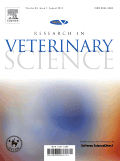
RESEARCH IN VETERINARY SCIENCE
Pioneering Research for Innovative Veterinary PracticesRESEARCH IN VETERINARY SCIENCE, published by Elsevier Science Ltd, stands as an authoritative platform in the field of veterinary studies. With its origins dating back to 1965, this prestigious journal is recognized for its contribution to the advancement of veterinary knowledge and practices, boasting a remarkable Q1 categorization in Veterinary (miscellaneous) and ranking 24th out of 194 in the Scopus veterinary general category, placing it in the top 13% of its field. The journal presents a diverse range of research articles that explore critical topics in veterinary science, thereby facilitating evidence-based practices and innovations. Although currently not an open-access journal, it remains highly accessible through institutional and personal subscriptions, allowing researchers, professionals, and students to benefit from its rich collection of studies. As it moves toward 2024, RESEARCH IN VETERINARY SCIENCE continues to be a vital resource for those dedicated to improving animal health and advancing veterinary science.
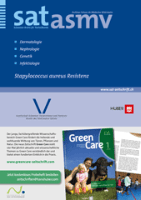
SCHWEIZER ARCHIV FUR TIERHEILKUNDE
Bridging knowledge and practice in veterinary medicine.SCHWEIZER ARCHIV FUR TIERHEILKUNDE is a prestigious journal published by the GESELLSCHAFT SCHWEIZER TIERARZTINNEN & TIERARZTE, dedicated to advancing the field of veterinary science. With the ISSN 0036-7281 and E-ISSN 1664-2848, this esteemed journal has been a vital source of knowledge since its inception in 1945, evolving through converged years up to 2024. It plays a significant role in the veterinary community, reflected by its 2023 ranking in the Q2 category for veterinary (miscellaneous) research, placing it within the 48th percentile among its peers. Although it does not currently offer Open Access options, the journal remains a trusted outlet for researchers, professionals, and students looking to stay abreast of the latest findings and practices in veterinary medicine. Published in Switzerland, it serves as a bridge for sharing innovative ideas and solutions in animal healthcare, emphasizing the importance of community and collaboration in improving animal welfare.

Journal of the Hellenic Veterinary Medical Society
Empowering the veterinary community through open access research.Welcome to the Journal of the Hellenic Veterinary Medical Society, a premier platform dedicated to advancing the field of veterinary medicine through high-quality research and scholarly discourse. Published by the Hellenic Veterinary Medical Society, this journal serves as a vital resource for veterinarians, researchers, and students who are committed to the advancement of animal health and welfare. With an ISSN of 1792-2720 and a recognized status in the community, the journal publishes impactful studies that contribute to the understanding of various veterinary disciplines. Although the journal currently sits in Q3 of the Veterinary (miscellaneous) category with a Scopus ranking of #157/194, it aims to elevate its reach and impact within the scientific community, fostering a culture of innovation and knowledge sharing. The journal strictly adheres to open access principles, ensuring that its findings are readily available to all, thereby promoting collaboration and comprehensive learning. By participating in this esteemed journal, authors and researchers contribute to the rich history and ongoing dialogue of veterinary science that dates back to its founding in 1953. We invite you to explore, engage, and contribute to the growing body of knowledge in veterinary medicine.
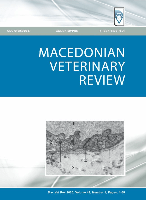
Macedonian Veterinary Review
Connecting researchers to elevate veterinary practices.Macedonian Veterinary Review is a prominent open access journal dedicated to advancing the field of veterinary science. Published by SCIENDO, this journal provides a crucial platform for researchers, professionals, and students to share their findings and insights related to veterinary practices, animal health, and welfare. Established with the aim of fostering knowledge exchange since its inception in 2010, the journal has made significant strides, evidenced by its 2023 Scopus ranking of #131 out of 194 in the General Veterinary category, placing it in the 32nd percentile among its peers. The journal's open access model enhances the dissemination of knowledge, ensuring that vital research reaches a wider audience, thereby addressing key issues in the veterinary landscape. With its base in Macedonia and a commitment to high-quality scholarly contributions, the Macedonian Veterinary Review is an essential resource for anyone involved in veterinary research and practice, reflecting the ongoing developments and challenges in this critical field.
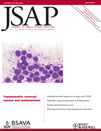
JOURNAL OF SMALL ANIMAL PRACTICE
Fostering a community of veterinary excellence.Welcome to the Journal of Small Animal Practice, a leading publication in the field of veterinary science, dedicated to advancing the knowledge and practice of small animal healthcare. Published by Wiley since 1960, this esteemed journal has established itself as a cornerstone in the veterinary community, boasting an impressive Q1 ranking in the small animals category as of 2023. With a Scopus rank of #5 out of 20, it places in the top 77th percentile, emphasizing its influence and reach within research domains. The Journal of Small Animal Practice serves as a vital platform for disseminating cutting-edge research, clinical studies, and reviews aimed at veterinary professionals and students alike. Although it does not offer open access, the journal's rigorous peer-reviewed process ensures high-quality content that significantly contributes to the field. Join the community of scholars and practitioners who rely on this journal to stay informed on emerging trends and best practices in small animal health.
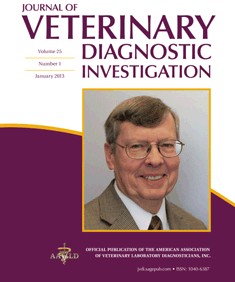
JOURNAL OF VETERINARY DIAGNOSTIC INVESTIGATION
Transforming animal health through rigorous diagnostic research.The JOURNAL OF VETERINARY DIAGNOSTIC INVESTIGATION, published by SAGE PUBLICATIONS INC, stands as a pivotal resource in the field of veterinary medicine, focusing on the latest advancements in diagnostic methodologies and their application in animal health. With an impressive impact factor and ranked in the Q1 category of Veterinary (miscellaneous) for 2023, this journal ensures the dissemination of high-quality research that is critical for veterinarians, researchers, and students alike. Established in 1989 and set to continue through 2024, it encompasses a broad spectrum of topics, vital for professionals committed to enhancing veterinary diagnostics. The journal's rigorous peer-review process guarantees that only the most innovative and thorough research contributions reach its audience, fostering an environment of academic excellence and knowledge transfer in the veterinary diagnostic field.